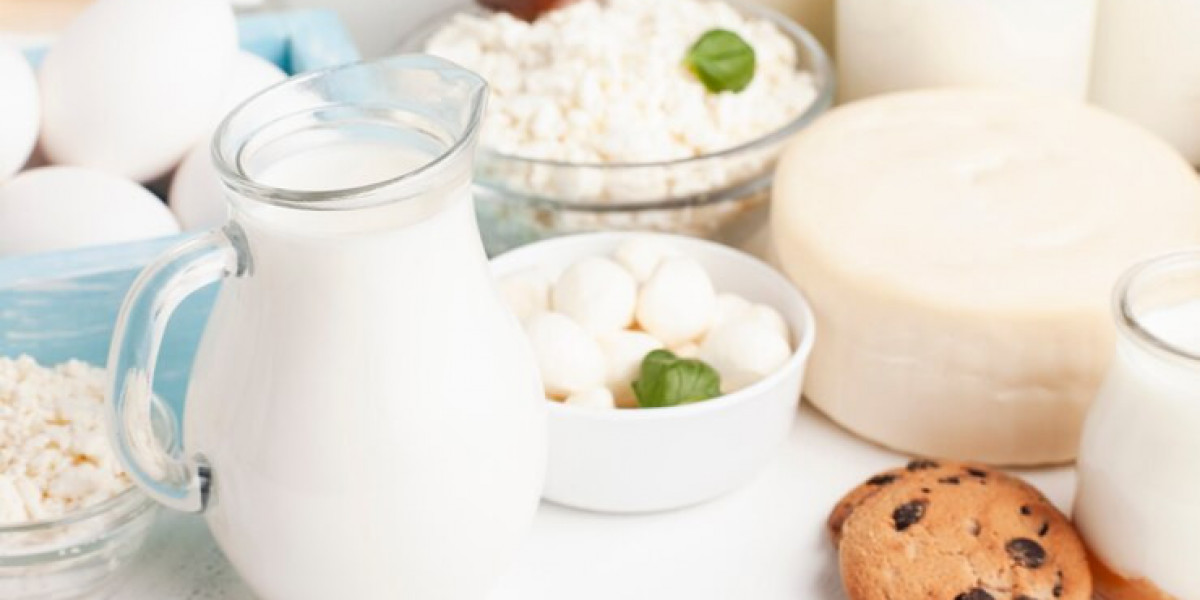Alternative Options Gain Popularity
Consumers are increasingly choosing plant-based options over traditional dairy products. Many are looking to reduce their environmental footprint or avoid animal products. Growth in this category has accelerated rapidly in recent years with demand expected to continue to rise. Alternative beverages made from almonds, coconuts, oats, and soy have become mainstream options sitting alongside cow's milk in grocery store refrigerators. Popular brands like Oatly, Ripple, and So Delicious have brought appealing textures and flavors to shelves while addressing various diets.
Nut Milk Innovation Drives Growth
Almond and soy milks have existed for decades but have seen renewed interest from both health-conscious individuals and families with children with allergies or lactose intolerance issues. Advancements in extraction and blending techniques have made nut milks creamier, richer, and more convincing Dairy Alternative. Coconut milk is also gaining popularity due to its naturally sweet flavor. However, it is oat milk that has truly broken through in recent years, attracting both flexitarians interested in reducing meat and dairy as well as vegans. Oat milks' subtle taste allows it to be used in coffee or blended into smoothies without noticeably altering recipes. Major food companies expanding into this category have further legitimized it for mainstream shoppers. New entrant brands aim to offer specialized nutrition propositions or organic and sustainably sourced options.
Creamers Join the Plant-Based Craze
While non-dairy milks have long been a crucial part of the category, other products are now emerging. Non-dairy creamers made from coconut, cashew, almond, and oat brands have multiplied on store shelves. Popular in coffee shops, these liquid or powdered creamers provide baristas and at-home drinkers dairy-free options. Products have improved taste profiles and consistency to seamlessly replicate half-and-half or condensed milk typically used. Manufacturers focused on function, nutrition and user experience are seeing significant gains as more move fully away from cow's milk in their diets or reduce overall animal product intake. New innovations in plant-based butter and yogurt alternatives also continue expanding choice.
Perceived Health Benefits Drive Purchase Decisions
Consumer interest in plant-based dairy substitutes are driven by a mixture of health, environmental, and ethical reasons. Those choosing these options commonly point to perceived nutritional advantages over conventional dairy products. Nut milks generally contain more vitamins, minerals and fiber while having less saturated fat and calories than whole cow's milk. Many also tout benefits for conditions such as lactose intolerance and cow's milk protein allergies. Marketing emphasizes natural and organic ingredients with minimal processing as well as lack of artificial growth hormones present in conventional dairy farming. As shoppers pay closer attention to labels and supply chain transparency, these priorities are resonating widely.
Environmentally-Conscious Shoppers Fuel Sales
Makers of plant-based dairy items effectively communicate benefits for the planet to eco-minded consumers. Cow's milk production requires significant land and water resources to raise cattle and harvest crops for feed. Greenhouse gas emissions from this process are also a major point stressed by brands. Switching even partially to nut, grain or plant-based alternatives can significantly lower one's carbon footprint. Companies quantify impact through life-cycle analyses, citing figures that show almond milk uses over 99% less water and 64% less land than cow's milk to produce the same quantity of milk. Tapping into ethical concerns over industrial animal agriculture has convinced many flexitarians and vegetarians that plant milks are the better option environmentally and align with their values.
Expanding Distribution Drives Accessibility
As demand from various consumer segments grows strongly, manufacturers must ensure widespread distribution through mainstream retail and restaurant chains. The category is outpacing total food and beverage sales according to industry figures. Companies are partnering with major grocery store banners and brokers to get products on shelves across entire markets. Cross-merchandising and end-cap displays are becoming more commonplace to raise visibility. Promoting use cases for foodservice has also boosted sales, now common in coffee shops and appearing on menus in dining establishments. Expanded private label offerings further leverage reach through more distribution points. With accessible options available wherever people shop regularly, plant-based dairy continues cementing its role in the lifestyle diets of millions.
Consumer demand is being satisfied through both established leaders expanding assortments and new entrants differentiating through functional ingredients or niche formulations. Blended options combining proteins and whole food ingredients are moving innovation forward in catering to varied diets and lifestyles. Investments in production capacity, promotional efforts and new product development ensure sustained momentum for plant-based dairy alternatives as shoppers welcome the choice supporting personal values and wellness goals. Wide distribution and appealing options make reducing or removing animal products from diets very practical, driving further gains predicted in the multibillion-dollar category in coming years.
Get More Insights On-Dairy Alternatives
Get This Report In Japanese
Get This Report In Korean
About Author:
Priya Pandey is a dynamic and passionate editor with over three years of expertise in content editing and proofreading. Holding a bachelor's degree in biotechnology, Priya has a knack for making the content engaging. Her diverse portfolio includes editing documents across different industries, including food and beverages, information and technology, healthcare, chemical and materials, etc. Priya's meticulous attention to detail and commitment to excellence make her an invaluable asset in the world of content creation and refinement.
(LinkedIn- https://www.linkedin.com/in/priya-pandey-8417a8173/)_










